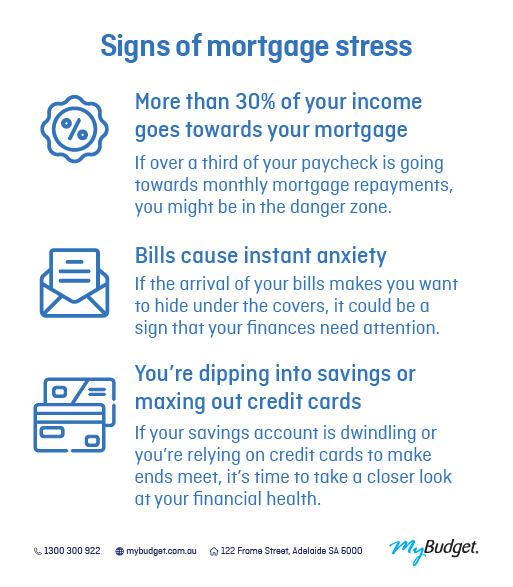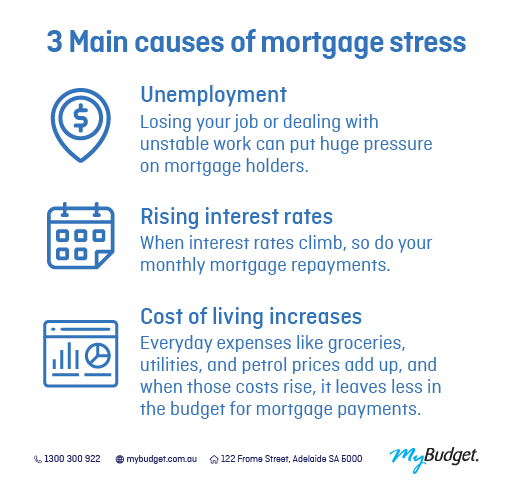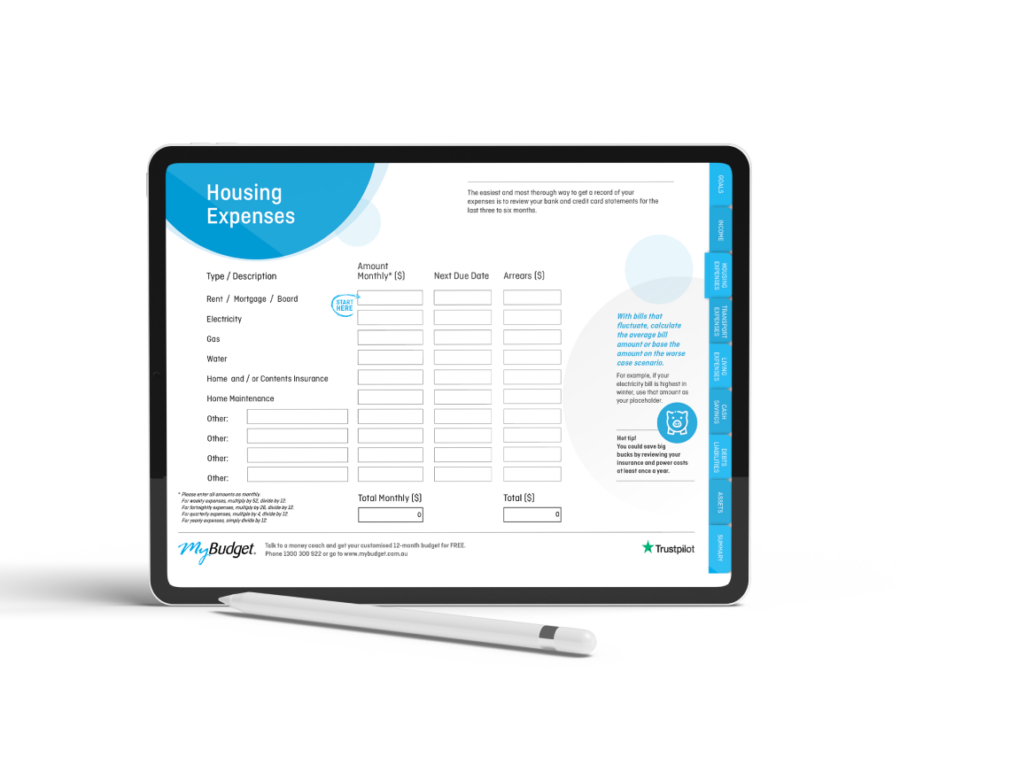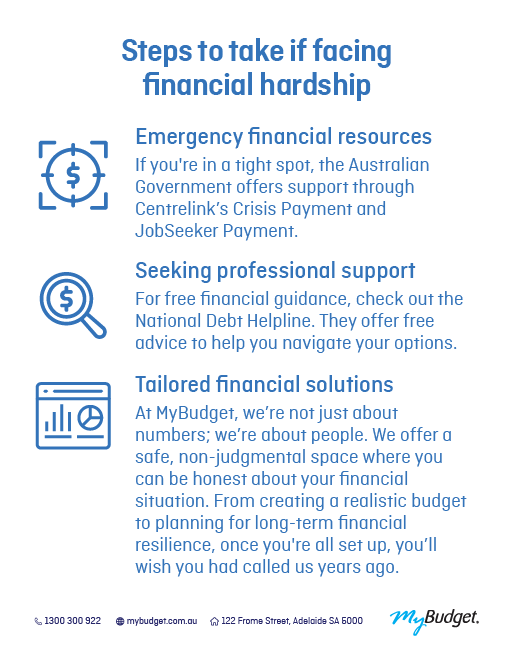Mortgage stress in Australia: signs, solutions, and how to stay ahead
Owning a home is often sold as the Australian dream, but for many, the reality includes juggling mortgage repayments, rising interest rates, and the increasing cost of living; all while trying to maintain some semblance of sanity. If you’re feeling the financial pressure, you’re definitely not alone. With the latest mortgage stress data now available, we’ve got the lowdown on where Australian households stand. So, let’s cut to the chase: what exactly is mortgage stress, how can you tell if you’re in it, and most importantly, what can you do about it?

What is mortgage stress and how did we get here?
Mortgage stress isn’t just a term; it’s the financial strain that hits when your monthly mortgage repayments start eating up more of your household income than they should. After 15 months and 13 rate rises, the Reserve Bank of Australia (RBA) finally dropped the cash rate by 0.25%, bringing it to 4.10% in February 2025. While this offers some relief, many Australian mortgage holders are still grappling with financial pressure.
How many Australians are in mortgage stress?
As of November 2024, Roy Morgan shows that 26.8% of Australians are at risk of mortgage stress.
While the Stage 3 tax cuts and the latest rate decrease offer some relief for mortgage holders, financial pressure remains high. A concerning 931,000 Australians (16.9%) are ‘extremely at risk’, just above the decade-long average of 14.5%. Projections suggest we’ll see a gradual reduction in the proportion of mortgage holders ‘at risk’ as inflation eases and incomes adjust.
Inflation has now dropped to 2.4%, sitting within the RBA’s target range of 2–3%. Keeping inflation within this range helps preserve the purchasing power of money and supports sustainable economic growth. However, uncertainty remains, and the RBA is closely monitoring economic conditions to ensure inflation remains stable.
Are you at risk of mortgage stress?
Signs and symptoms
Wondering if you’re one of the 1.6 million Australian householders feeling the mortgage squeeze? Here are some tell-tale signs:

- More than 30% of your income goes towards your mortgage: If over a third of your paycheck is funnelled into monthly mortgage repayments, you might be in the danger zone.
- Bills cause instant anxiety: If the arrival of your bills makes you want to hide under the covers, it could be a sign that your finances need attention.
- You’re dipping into savings or maxing out credit cards: If your savings account is dwindling or you’re relying on credit cards to make ends meet, it’s time to take a closer look at your financial health.
Not sure where you stand? Use our most popular online tool, the MyBudget Mortgage Stress Calculator to find out if you are at risk of mortgage stress.



Your mortgage payments are of your pre-tax income.
Monthly income:
$0
Monthly repayments:
$0
Monthly balance:
$0
The mortgage stress bar shows visually how close you could be to experiencing mortgage stress.
Causes of mortgage stress
Mortgage stress doesn’t just sneak up on you; here are the top 3 culprits that put the squeeze on your finances in the Australian mortgage market today:
- Unemployment: Losing your job or dealing with unstable work can put huge pressure on mortgage holders. Even though unemployment sits at 4.0% in January 2025, it’s still a key factor to watch out for.
- Rising interest rates: Even with the recent rate drop to 4.10%, many Aussie homeowners are still feeling the squeeze. Mortgage repayments remain high, and financial pressure is far from over as households adjust to ongoing cost-of-living challenges.
- Cost of living increases: Everyday expenses like groceries, utilities, and petrol prices add up, and when those costs rise, it leaves less room in the budget for mortgage payments.

Impact of mortgage stress on borrowers
Mortgage stress doesn’t just strain your finances; it can also lead to default notices, which risk penalties and the possibility of losing your home. The mental toll is significant too, with stress, anxiety, and depression often following financial worries. Long-term, it can damage your credit score, limit future borrowing options, and delay achieving your financial goals. Understanding these impacts can help you take proactive steps to manage financial stress before it spirals.
Managing mortgage stress
Budget your way out of mortgage stress
Budgeting doesn’t have to be a dreaded chore; it can actually be the key to unlocking financial peace of mind. In fact, it’s your best defence against mortgage stress. Start by jotting down all your expenses; yes, even that daily coffee! Maybe it’s time to rethink a few of those subscriptions or order fewer takeaways. And if you can, pay more than the minimum mortgage repayment to build a savings buffer against future interest rate rises.
Make things easier with MyBudget’s free Personal Budget Template. It’s an invaluable tool for seeing where your money’s going and making adjustments. Plus, if you need extra support, MyBudget is here to help you create a stress-free financial plan that sets you up for a more secure future.

Refinancing options
Refinancing might sound like a hassle, but it could be the key to lowering your monthly mortgage repayments. By swapping out your current mortgage for one with better terms, you could save a significant amount on interest; and that could mean thousands of dollars back in your pocket.
On average, clients who refinanced their home loan through MyBudget Loans saved around $10,000 per year. This could be a real game-changer and a reduction in mortgage stress.
If you’ve been wondering about debt consolidation, take a look at our guide: Debt consolidation: is it right for you?
from money worries
Start today with a FREE no obligation appointment
Build emergency savings
An emergency fund isn’t just a nice-to-have; it’s a must. Aim to save a minimum of three months worth of living expenses. To make it more fun, turn saving into a game, set mini-goals and reward yourself when you hit them. You could even challenge friends or family to join the race, who doesn’t love a bit of friendly competition? This way, if something unexpected happens, like a job loss or an injury, you’ll have a financial cushion to fall back on.
Managing mortgage stress can feel overwhelming, but you don’t have to go it alone. MyBudget can help you implement all of these strategies; from creating a budget that works for you to exploring refinancing options through MyBudget Loans and building that essential emergency fund. With our support, you can take control of your finances, reduce stress, and secure a brighter, more stable future. Whether you need guidance or a full financial plan, MyBudget is here to help you every step of the way.

Steps to take if facing financial hardship
Financial hardship can feel like a mountain to climb, but there are resources to help you get through it.
- Emergency financial resources: If you’re in a tight spot, the Australian Government offers support through Centrelink’s Crisis Payment and JobSeeker Payment. They can provide immediate relief.
- Seeking professional support: For free financial guidance, check out the National Debt Helpline. They offer free advice to help you navigate your options.
- Tailored financial solutions: At MyBudget, we’re not just about numbers; we’re about people. We offer a safe, non-judgmental space where you can be honest about your financial situation, and our team is here to listen with compassion. From creating a realistic budget to planning for long-term financial resilience, once you’re all set up, you’ll wish you had called us years ago. The relief our clients feel when they can finally let go of the stress of making ends meet is something we love to provide. Seeing clients thrive and enjoy life again is what makes our work truly rewarding.

What’s next for mortgage stress in Australia?
The 2024 tax cuts are already in full swing, offering some relief to many Australians. With inflation now within the RBA’s target range of 2–3%, financial conditions are stabilising. However, despite the recent rate cut to 4.10%, the cost-of-living crisis continues to weigh heavily on households, making it crucial to stay prepared. Keep up with the latest financial news by following MyBudget on Facebook.
Have you read our article on how to make the most of the 2024 tax cuts to ensure you’re getting the full benefit?
How can MyBudget help with mortgage stress?
If you’re feeling the pressure or just want to get ahead before things get too tight, MyBudget is here to help. We’ve assisted over 130,000 Australians in taking control of their finances, reaching their budgeting goals, and paying their bills on time. Enquire online or give us a call at 1300 300 922.
Cheryl is part of the My Budget Corporate Finance team and takes care of the company’s finances with the same care that MyBudget extends to their clients budgets. She speaks from the heart about relevant financial topics, reflecting on her own personal journey through separation, single parenting, budgeting, investing and beating cancer.
